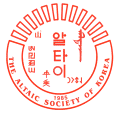DENWOOD, A. (2010). Exceptional Behaviour of Arabic Long Vowels in Modern Turkish and Uighur: a Government Phonology Explanation for Disharmony. Altai Hakpo 20: 211-229. The Altaic Society of Korea.
Loan words from Arabic which originally had long vowels have had a lasting effect on the phonology of modern Turkish and Uighur. These vowels trigger three types of exception: i. disharmony in both languages, ii. mismatches between palatalised consonants and back vowels in Turkish, and similar consonant-vowel mismatches in Uighur, iii. failure of a~i alternation in Uighur.
In this paper, written within the framework of Government Phonology, constraints on the combination of elements which make up the vowels of modern Turkish will be proposed. These constraints include a representation for long vowels in addition to the standard regular vowels. The exceptional behaviour of originally long vowels will be explained by their element heads, and compared with similar irregularities in Uighur. Vowel harmony and disharmony in Turkish are predictable outcomes of the proposed constraints.
Keywords: harmony, opacity, element heads, licensing constraints, predictablilty

